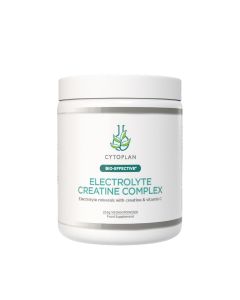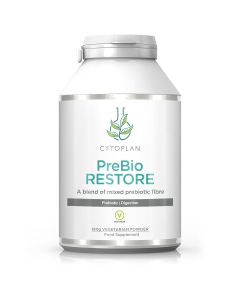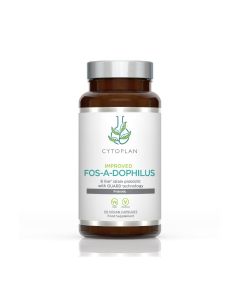What are prebiotics?
While the therapeutic use of probiotic bacteria is well publicised for their role in supporting the growth and diversity of the microbiome, and the subsequent health benefits received, an important adjuvant to probiotics is the practice of using prebiotics in both diet and supplements.
Prebiotics are specific types of fibre which can be digested by the gut microbiota. Humans lack the enzymes to digest most prebiotic fibres, so they pass through the small intestine unaffected before being fermented by the microbiota in the large intestine. By providing an energy source for the gut microbiota, prebiotics can modulate the composition, quantity and function of these microorganisms.
When prebiotics are fermented by gut bacteria, the final products produced are mostly short chain fatty acids (SCFAs). Their health benefits include providing fuel for colonocytes (cells that line the colon) thereby supporting the integrity of the digestive tract lining, creating the right environment in the gut for the uptake and absorption of electrolytes and nutrients and they also display anti-inflammatory action. SCFAs are also absorbed across the gut lining and transported to other organs of the body via the blood stream, giving systemic benefits.
Prebiotics can lower the intestinal pH and maintain the osmotic retention of water in the bowel. Through doing so, they create a supportive environment for the growth of commensal, friendly bacteria as well as healthy bowel movements by preventing the dryness of stools which can contribute to constipation.
As different prebiotics have different chain lengths and structures, they will be fermented by different strains of bacteria and therefore can support a more diverse microbiome. Shorter chain length prebiotics have a greater osmotic capacity and can therefore draw more water into the gut which can support healthy bowel movement but may also contribute to diarrhoea – which is why taking a variety of prebiotic fibres is important in order to support normal bowel movement without contributing to loose stools. Specific prebiotics known to exert health benefits include Fructo-Oligosaccharides (FOS) which can promote the growth of health-promoting bacteria while reducing pathogenic populations, Galacto-Oligosaccharides (GOS) which can stimulate the beneficial Lactobacilli and Bifidobacteria and Inulin, which has been shown to influence both immune and cardiovascular health.
Aside from their benefits on the health of the digestive system, the administration of prebiotics has also shown to promote healthy immune function as well as having multi-factorial benefits on areas such as nervous and cognitive health as well as healthy skin. As such, they are an important consideration for supplementation but also to include in the diet through foods such as onions, chicory, pomegranate, olives, baked apples and Jerusalem artichoke. The most important way to support diversity and provide a range of prebiotics is to consume a highly diverse diet of wholefoods. Why not set yourself a challenge and aim for 50 different wholefoods per week – including as many different fruit and vegetables as you can, from kale to asparagus, oats to bananas and provide the best support for your digestion and overall health.







